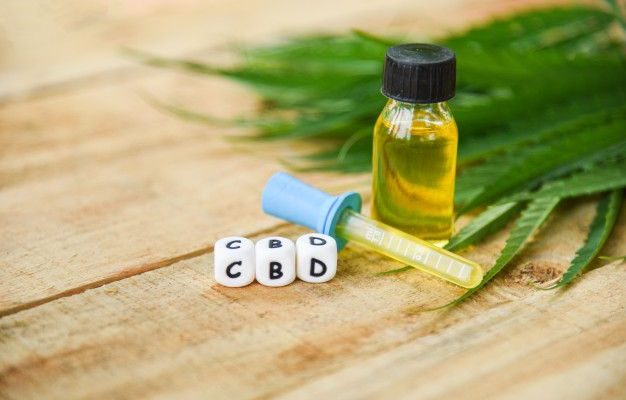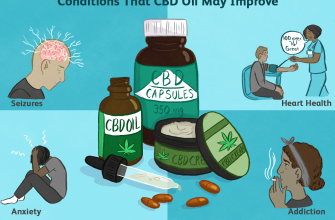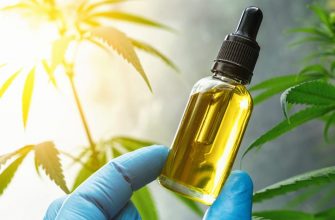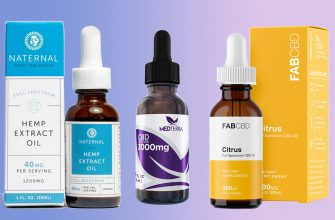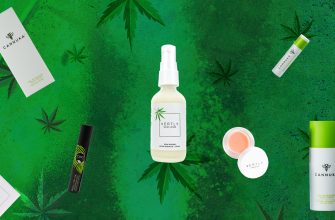CBD and health. Today we are translating an article from the blog for you Harvard University. The link to the article in English (original) is below.
Cannabidol (CBD) gets a lot of media coverage, and you might see it advertised as a post-workout smoothie or morning coffee. You can even buy CBD-filled sports bras. But what is CBD? And why is it so popular?
How is cannabidiol (CBD) different from real marijuana (THC)?
CBD, or cannabidiol, is the second most common active ingredient cannabis (marijuana). Though CBD is an important component medical marijuana, it is obtained directly from the cannabis plant, a relative of marijuana, or produced in a laboratory. One of the hundreds of components of marijuana, CBDdoes not in itself cause drug intoxication. According to a World Health Organization report: “CBD does not intoxicate people, which does not suggest abuse or the possibility of addiction. To date, there is no evidence of public health problems associated with the use of pure CBD“.
Is cannabidiol legal?
CBD readily available throughout most of the US, although its exact legal status has changed. All 50 states have laws legalizing CBD with various restrictions. In December 2015, the FDA relaxed regulations to allow researchers to conduct research. CBD. In 2018, the Farm Act legalized cannabis in the United States, making illegal possession CBD practically impossible – it would be like legalizing oranges, but illegal possession of orange juice.
The Farm Act excluded all cannabis products, including CBD, from the Controlled Substances Act, which criminalizes drug possession. Essentially, this means that CBD is legal if it is derived from cannabidiol, but not from cannabis THC – even if it is the exact same molecule. Today many people get CBD online without a medical marijuana license, which is legal in most states.
CBD and health – data on the health benefits of cannabidiol
CBD has been touted for a variety of health problems, but the most compelling scientific evidence is its effectiveness in treating some of the most severe childhood epileptic syndromes such as Dravet syndrome and Lennox-Gastaut syndrome (LGS). , which usually do not respond to antiseptic drugs. In many studies CBD was able to reduce the number of seizures, and in some cases completely stop them. Epidiolex containing CBD, represents the first cannabis drug to be approved by the FDA for these conditions.
Animal experiments and self-report or human studies show that CBD may also help:
- Anxiety. Research and clinical trials are examining a joint report that CBD may reduce anxiety.
- Insomnia. Research shows that CBD Helps with both falling asleep and insomnia itself.
- chronic pain. Further human studies are needed to confirm claims that CBD helps control pain. Animal studies published in the European Journal of Pain show that CBD when applied to the skin, it can help reduce pain and inflammation caused by arthritis. Other studies show how CBD can suppress inflammatory and neuropathic pain that is difficult to treat.
- Addiction. According to some people’s research, CBD may help reduce cravings for tobacco and heroin under certain conditions. Animal models of addiction show that it can also help reduce cravings for alcohol, cannabis (THC), opiates, and stimulants.
CBD and health – is CBD safe?
Side effects CBD include nausea, fatigue, and irritability. CBD can increase the levels of blood thinners and other drugs in your blood by competing for liver enzymes that break down these drugs. Grapefruit has similar effects with certain medications.
People taking high doses CBDmay show abnormalities in blood tests. Many prescription drugs, such as acetaminophen (Tylenol), have the same effect. So, you should tell your doctor if you are using CBD.
Important security issue CBD is that it is marketed and sold primarily as a dietary supplement and not as a drug. The FDA does not currently regulate the safety and purity of dietary supplements. Thus, you cannot be sure that the product you are purchasing has the indicated dosage of active ingredients. In addition, the product may contain other unknown elements. We also do not know the most effective therapeutic dose. CBD for a specific state.
How can CBD be used?
CBD available in a variety of forms including oils, extracts, capsules, patches, wipes, and topical formulations. If you’re hoping to reduce inflammation and relieve muscle and joint pain, a topical treatment may be your best bet. CBD butter, cream or even a bath bomb. In addition, the patch CBD, tincture or nebulizer CBD allows blood flow to flow directly into the bloodstream.
Outside the US, a prescription drug called Sativex that uses CBD, is approved for the treatment of muscle spasticity associated with multiple sclerosis and cancer pain. In the United States, Epidiolex is approved for certain types of epilepsy and tuberous sclerosis.
Summary of CBD (Cannabidiol)
Some manufacturers CBD came under government scrutiny for unsubstantiated, unprotected claims, such as that CBD is any cure for cancer or COVID-19, but it is not. We need more research, but CBD may prove to be a useful, relatively non-toxic option for treating anxiety, insomnia, and chronic pain. Without sufficient qualitative evidence from human studies, we cannot determine effective doses, and since CBD Now widely available as an unregulated supplement, it’s hard to know exactly what you’re getting.
If you decide to try CBD, make sure you get it from a trusted source. And talk to your doctor to make sure it doesn’t affect other medications you take.
Original article: Harvard Health Publishing

